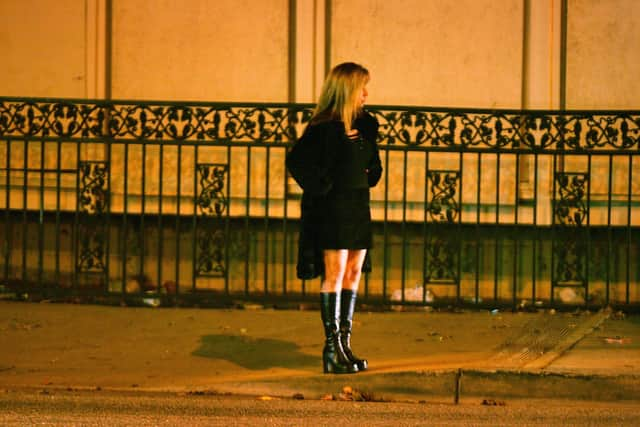Prostitution: What is the law in Scotland, and what do campaigners want to see changed?
Does the law on prostitution in Scotland need to change?
A group of campaigners certainly think so, saying legislation on the buying and selling of sex in Scotland is “outdated and unjust”. They want to reform how prostitution is viewed and handled in Scotland by adopting the ‘Nordic model’ of prostitution legislation.
Trafficking for sexual exploitation is the most detected form of human trafficking and the most profitable form of modern slavery in the world. The trafficking of women and girls for sexual exploitation generates $100 billion [£78bn] in profits globally every single year.


Advertisement
Hide AdAdvertisement
Hide AdBut what exactly is the law and why do campaigners think it needs to change?
The Scotsman takes a look at exactly what the law says about prostitution in Scotland and what could happen if reforms are introduced.
What is the current law in Scotland?
At the moment soliciting in public, kerb crawling and brothel-keeping are illegal. However, running a pimping website and paying for sex are both legal.
That means the person buying sex is not doing anything wrong legally – but the prostituted women selling sex are criminalised.
What do campaigners want changed?
The campaign group ‘A Model for Scotland’ has said the laws in Scotland are “outdated and unjust”.
The group says: “Pimping websites operate free from criminal sanctions, men who exploit women by paying for sex enjoy impunity, while women abused through prostitution face penalties for soliciting. It’s time to right these legal wrongs.”
They say around 4 per cent of men in Scotland have paid for sex in the past five years, and a cross-party group in Holyrood has said pimping websites have catalogues of women being advertised.
They say legislation needs to be reformed in a way that deters men from paying for sex and holds pimps and traffickers to account, and supports rather than sanctions victims of sexual exploitation.
What does the Scottish Government say?
Advertisement
Hide AdAdvertisement
Hide AdIn 2021, the Government pledged to change how prostitution was criminalised in Scotland by shifting the burden of criminality away from women engaged in prostitution, and onto the men who buy and pay for it. Ministers hope to do this by challenging men’s demand for prostitution and supporting women involved in prostitution to leave the exploitation.
What has the Government done already?
In 2021, the government pledged to develop ‘A Model for Scotland’ to challenge men’s demands for purchasing sex.
They carried out research in 2017 that branded prostitution a form of gender-based violence and said there were risks to women’s safety as well as their physical and mental health.
They also said they had seen a “noticeable” shift from on-street to indoor prostitution in recent years, which is much less visible and therefore more difficult to estimate the true number of women being exploited.
Does this way of legislating for prostitution happen anywhere else?
Yes – Sweden was the first country in the world to legally recognise prostitution as a form of violence against women, and in 1999 criminalised paying for sex while decriminalising selling sex.
Campaigners in Scotland say this ensures the “victims of sexual exploitation would not be punished for their own abuse”. They say the Nordic model is a good foundation for how Scotland should reform its own laws.
Other countries have followed a similar path to Sweden, including France, Norway, Ireland, Northern Ireland, Israel and Iceland.
Doesn’t Scotland already have an obligation to tackle prostitution?
Yes – Scotland has signed up to a number of international pledges, which makes the Government responsible for reducing the demand for commercial sexual exploitation.
Advertisement
Hide AdAdvertisement
Hide AdThis includes the United Nation’s ‘Palermo protocol’, which says states must strengthen legislation as well as changing social and cultural attitudes to discourage all forms of exploitation that lead to trafficking.
Scotland has also signed up to the Convention on the Elimination of All Forms of Discrimination of Women, and the Council of Europe Convention on Action against Trafficking in Human Beings.
Prostitution versus sex work – what’s the right term to use?
The women The Scotsman has spoken to have asked us not to use the term “sex work” or “sex worker”.
They say this legitimises the exploitation and trafficking, and using the word “work” normalises this and inaccurately makes it seem as though it is the same as any other job. Therefore in all our reporting on this subject, The Scotsman has chosen not to use these phrases.
Comments
Want to join the conversation? Please or to comment on this article.